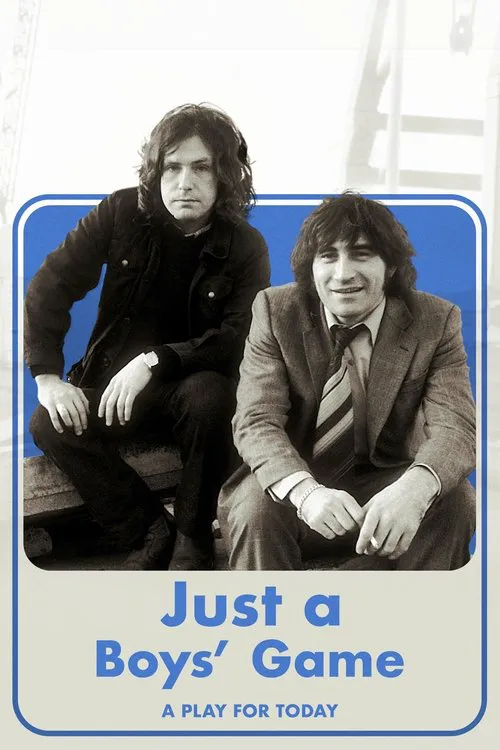Just a Boys' Game

Enredo
"Justin Chadwick's directorial debut, "Just a Boys' Game," is a heart-wrenching exploration of toxic masculinity, the fragility of male relationships, and the cyclical nature of violence. The film's protagonist, Jake, is a complex and deeply troubled individual, whose existence is inextricably linked to that of his ailing grandfather, a figure synonymous with toughness and intimidation in their small town. Jake's is a life beset on all sides by violence, booze, and the crushing weight of expectation. His father, though physically present, has long since abandoned his son, leaving Jake to navigate a world devoid of love and affection. In this vacuum, his grandfather, Gus, has become both father figure and adversary, a constant reminder of Jake's own inadequacies and a symbol of the brutality he feels he must emulate in order to escape the shadows of his own identity. Gus, once a formidable fighter, is a man ravaged by time and regret. His eyes, though still piercing, now cloud over with a deep sadness, as he contemplates the legacy he has left for his son and grandson. In contrast, Jake's life is a maelstrom of chaos, driven by his desire to prove himself as a worthy successor to his grandfather's legacy. He measures himself in fists and beers, fueling his body with a toxic mix of physical exertion and substance abuse, all in a futile attempt to fill the void within. The tension between Jake and Gus is palpable, a toxic dynamic that has been building for years. They push each other to the edge, their interactions often devolving into arguments and physical altercations. On the surface, it appears to be a simple matter of generational conflict, with Jake rebelling against the authority of his aging grandfather. Yet, as the narrative unfolds, it becomes clear that this is a much deeper and more complex issue, one rooted in a deep-seated insecurity and a desperate attempt to connect. As the days blur together in a haze of drink and violence, Jake begins to realize that his actions, though aimed at emulating his grandfather's toughness, are actually mirroring a painful cycle of abuse and neglect. The more he fights, the more he feels a creeping sense of emptiness, a hollowing out of his very being. In those moments of stillness, as he sits alone in his darkened room or wanders the empty streets, he catches glimpses of a different life, one where emotions are not something to be suppressed, but explored and understood. This moment of awakening is a slow-dawning epiphany, one that comes with immense personal cost. Jake's world begins to unravel, as he grapples with the weight of his own emotions and the realization that his grandfather's legacy may not be one he wishes to emulate. The lines between past and present begin to blur, and Jake finds himself lost in a sea of regret and sorrow. In the film's stunning climax, Jake comes face-to-face with his grandfather, in a confrontation that is both tender and brutal by turns. The scene is a masterclass in emotional subtlety, as Justin Chadwick masterfully captures the fragility and vulnerability of these two damaged souls. In this moment of raw honesty, Jake finally begins to break free from the toxic cycle of violence, recognizing that his true strength lies not in his ability to fight, but in his capacity to love and be loved in return. As the credits roll, we are left with a haunting sense of possibility, the promise of a new beginning for Jake and Gus. The film's title, "Just a Boys' Game," takes on a new meaning, as we realize that this is not just a story about the fragility of the male ego, but about the power of redemption and the human capacity for change. In "Just a Boys' Game," Justin Chadwick has crafted a devastatingly beautiful film, one that will linger in the viewer's mind long after the final credits have rolled.
Resenhas
Recomendações




